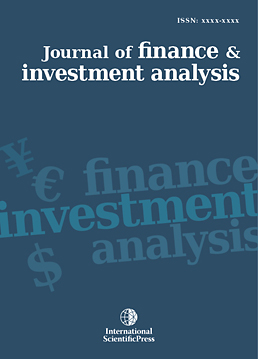Journal of Finance and Investment Analysis
Monetary Policy and Asset Prices: Empirical Evidence from Nigeria
-
 [ Download ]
[ Download ]
- Times downloaded: 12168
-
Abstract
Besides providing enhanced macroeconomic and financial stability, a commitment to optimum monetary policy conduct in a developing economy like Nigeria could better deliver greater long-run stability of both internal and external macroeconomic factors. The need for an ordered monetary policy regime that considers financial assets in its formulation and execution forms the basis for this study. Using the empirical methodology of vector autoregression (VAR), this study sought to determine the effects of monetary policy on asset prices in Nigeria. Quarterly data covering eleven-year period (1990 to 2010) were employed in the analyses. The principal conclusion of this paper is that monetary policy responds weakly to asset price fluctuations in Nigeria and that the effects of such response take long periods in manifesting. Moreover, monetary policy is actually destabilizing in its effect on real asset prices in Nigeria. Therefore, the study recommends that monetary authorities adopt flexible inflation targeting as part of a broad reform package that includes improved financial regulation and fiscal reform. This is because changes in the monetary regime alone, without support from the regulatory and fiscal arms of government, are not likely to sufficiently address asset price fluctuations in Nigeria and, perhaps, in other developing economies.
